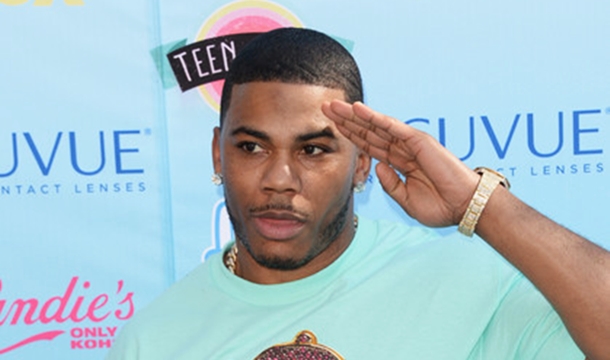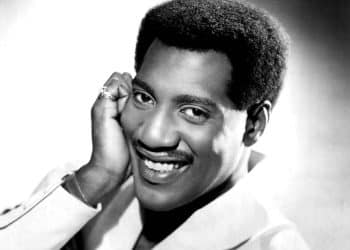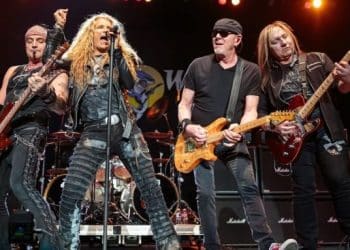Are Hip Hop artists the easiest target or scapegoat? According to Nelly, the media continues to single out hip-hop stars because they are the "lowest voice on the totem pole" and no one is willing to necessarily defend Hip Hop like other genres.
"First off, this is an art. This is not being politically correct. This is emotion. I think you feel a responsibility to express yourself the best way you know how and try to be truthful about it. A lot of times, people — as in media folk — they want to promote what they want to promote. That's the word that gets out a lot of times. The media can control how they want views to come out and how they want to say it," Nelly told Earshot in a recent interview. "Every hip-hop artist I know has a nonprofit organization, but nobody talks about that. First thing they want to do is talk about the bad shit, not how many families they employ or how many kids they sent to school. They want to [blame] the problems of the world on hip-hop because we're the lowest voice on the totem pole."
Adding to that, Nelly says Hip Hop artists often bring up things that people would rather not talk about or things they'd rather ignore and pretend that they don't exist. That said, he still admits that artists, like Kanye West and perhaps Chris Brown, don't make it hard for the media to single them out.
"We're the easiest scapegoat. I'm not gonna front — we don't make it hard for them with a lot of the things we do. But you have to understand that a lot of people in hip-hop think socially. We come from places that don't always get a chance to be heard. When we do step on the scene, we kind of jell over topics some people don't want to hear [about]."
Thoughts?
If you’re a fan of hip hop, you’ve probably heard the criticisms that come with it. From accusations of promoting violence and misogyny to claims that it’s just not ‘real music,’ the genre has been under scrutiny for years. But Nelly, one of the biggest names in hip hop, is here to defend his art form.
In an interview with The Guardian, Nelly spoke out about why he believes hip hop is often unfairly targeted. ‘We’re the easiest scapegoat,’ he said. ‘People want somebody to blame for everything.’
Despite this, Nelly remains proud of his contributions to the genre and doesn’t shy away from discussing its impact on society. So if you’ve ever found yourself wondering whether hip hop deserves all the criticism it receives, read on to hear what Nelly has to say.
The Criticisms Facing Hip Hop
Hip hop’s facing criticisms, but we’re not the only genre with problematic content. Every genre has their own set of issues and controversies, yet hip hop seems to be the easiest target for criticism. It’s often blamed for promoting violent behavior, misogyny, drug use, and other societal ills.
However, it’s important to note that these themes are not unique to hip hop. They can be found in movies, TV shows, literature, and even other music genres such as rock and country. So why is hip hop singled out? Some argue that it’s because of its association with black culture and its history of being used as a form of resistance against oppression.
Regardless of the reasons behind the criticisms faced by hip hop, it’s important to have open discussions about the impact of its content on society. But instead of solely blaming hip hop for societal problems or using it as a scapegoat, we should also acknowledge the positive aspects of the genre such as its ability to empower marginalized communities and give voice to those who’ve been silenced.
Nelly’s Defense of the Genre
You might be surprised to learn that there are artists who defend the genre of hip hop and argue that it’s unfairly criticized. Nelly, for instance, is one of those artists.
In a recent interview with The Guardian, he spoke out against the criticisms facing hip hop. According to him, the genre has been made into an easy scapegoat by those who don’t understand its culture.
For Nelly, hip hop is more than just music; it’s a representation of a particular way of life and culture. He argues that critics fail to see this aspect and instead focus on negative stereotypes associated with the genre. This narrow-minded view has led to unfair criticism and stigmatization of hip hop as a whole.
Despite these criticisms, however, Nelly remains optimistic about the future of hip hop. He believes that as more people gain an understanding of its culture and values, they’ll come to appreciate the genre’s artistic merit. For him, the key lies in educating people about what hip hop truly represents – not just through its music but also through its history and cultural significance.
Conclusion
So, there you have it. Nelly has spoken out in defense of hip hop, stating that the genre is often unfairly scapegoated for societal issues. He acknowledges that hip hop does have its flaws and controversies, but argues that it shouldn’t be solely blamed for larger systemic problems.
As with any art form, hip hop should be analyzed and critiqued, but without jumping to hasty conclusions or dismissing the entire genre as problematic. It’s important to consider the cultural and societal context in which hip hop exists and recognize its contributions to music and popular culture.
Rather than placing blame on one specific group or genre, we must work towards addressing the root causes of societal issues and promoting understanding and empathy towards all forms of expression.




